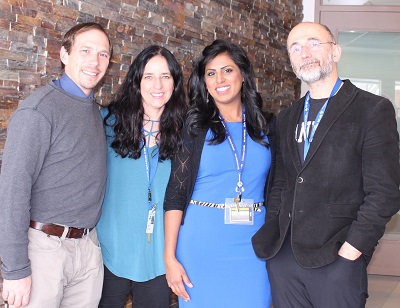Newsroom
How can you avoid a “predatory” journal? New research provides guidance
March 16, 2017
 It is not uncommon for a researcher to receive dozens of emails from “predatory” journals each week. These emails offer to publish academic research in an open access journal, often with rapid peer-review at a discount. But in many cases, they publish garbage and engage in questionable editorial practices.
It is not uncommon for a researcher to receive dozens of emails from “predatory” journals each week. These emails offer to publish academic research in an open access journal, often with rapid peer-review at a discount. But in many cases, they publish garbage and engage in questionable editorial practices.
Larissa Shamseer, a PhD student, worked with Dr. David Moher and colleagues to establish 13 evidence-based characteristics that researchers can use to help identify predatory journals, based on a detailed evaluation of nearly 300 journals. The list includes items like typos on the journal website, fuzzy or knock-off images, promises of rapid publication, email-based manuscript submission and promoting fake metrics (e.g. Index Copernicus Value).
The full list of identifying features, published in BMC Medicine with a blog, is expected to be particularly valuable with the recent disappearance of “Beall’s list” of predatory journals.
Dr. Moher is a senior scientist at The Ottawa Hospital and associate professor at the University of Ottawa. He also leads The Ottawa Hospital’s Centre for Journalology.
Authors: Larissa Shamseer, David Moher, Onyi Maduekwe, Lucy Turner, Virginia Barbour, Rebecca Burch, Jocalyn Clark, James Galipeau, Jason Roberts, Beverley J. Shea.
Funders: No designated funders, but all researchers at The Ottawa Hospital are supported by The Ottawa Hospital Foundation. Dr. Moher also holds a University of Ottawa Research Chair.
The Ottawa Hospital: Inspired by research. Driven by compassion
The Ottawa Hospital is one of Canada’s largest learning and research hospitals with over 1,100 beds, approximately 12,000 staff and an annual budget of over $1.2 billion. Our focus on research and learning helps us develop new and innovative ways to treat patients and improve care. As a multi-campus hospital, affiliated with the University of Ottawa, we deliver specialized care to the Eastern Ontario region, but our techniques and research discoveries are adopted around the world. We engage the community at all levels to support our vision for better patient care. See www.ohri.ca for more information about research at The Ottawa Hospital.
University of Ottawa: —A crossroads of cultures and ideas
The University of Ottawa is home to over 50,000 students, faculty and staff, who live, work and study in both French and English. Our campus is a crossroads of cultures and ideas, where bold minds come together to inspire game-changing ideas. We are one of Canada’s top 10 research universities—our professors and researchers explore new approaches to today’s challenges. One of a handful of Canadian universities ranked among the top 200 in the world, we attract exceptional thinkers and welcome diverse perspectives from across the globe. www.uottawa.ca
Media contact
Jennifer Ganton
Director, Communications and Public Relations
Ottawa Hospital Research Institute
Office: 613-798-5555 x 73325
Cell: 613-614-5253
jganton@ohri.ca
